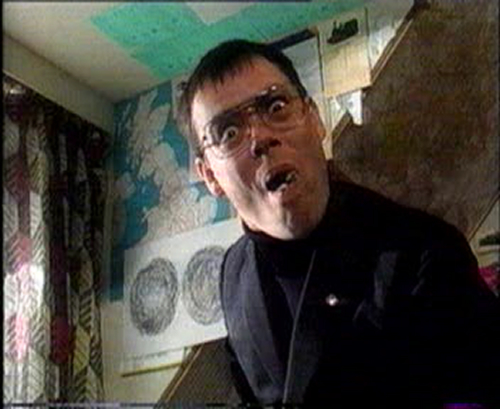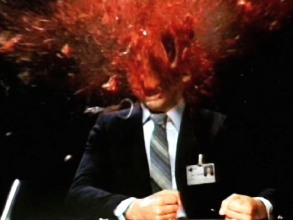Here's a fantastic article by Brain Keene in which he succinctly states
"A professional writer spends more time writing than they do talking about writing."
He also discusses how real life impacts on writing, and what's really important in terms of being a professional writer and a "hobbyist". If you've got a spare ten minutes, give it a good read. I've mentioned many times before (including at the start of my last post) about how life can, and will, get in the way of my own writing. It's kind of irritating, but ultimately there are more important things to worry about than whether I can write 500 or 5000 words in a day. What I would like to talk about today is Mr Keene's quote.
I know people (naming no names) who can, and will, talk about (their) writing until the cows come home. What ideas they've come up, what plots they've made a note of, what the grand scheme is in terms of a main character's continuing adventures past the initial novel...and so on. The only thing is, these people have never done anything. Maybe they've written a few chapters, or an outline, but that's a world away from writing a complete story and then selling it to a publisher. Talking about writing does not make you a writer, the same way talking about starting an amazing band does not make you a rock star.
I know a few too many people who are full of big ideas but no will to make them happen. Don't misunderstand me - there is absolutely nothing wrong with having dreams and aspirations, or talking about those things. The difference is in when a person talks about something with the certainty of accomplishing it, when they don't possess the wherewithal to actually do anything. Simply put, don't tell people you're going to do something if you have no intention of doing it. We all fall into this trap from time to time (usually because life gets in the way) but once you recognize the pattern, why not take steps to avoid or even prevent it? I think the answer to this is, unfortunately, some people are so used to the idea of talking big potatoes that they are unable to see that they're repeating old behaviour and that, until they break free from this routine, they'll forever be small fry.
I made a deal with myself a few years ago to refrain from telling people I'm going to do something until there is an extremely strong chance of that thing actually happening. Which brings me back to writing, specifically. I've always enjoyed writing - I used to fill exercise books with stories when I was 6, used to enjoy writing stories at school when I was 10, used to spend every Sunday afternoon writing when I was a teen...I asked for a typewriter for my birthday when I was around 13, and to my eternal gratitude, my parents got me one. It was a nice big chunky grey Smith Corona model. I would write at the kitchen table in-between painting my Warhammer undead army, as my mum cooked tea. Then, when I was 15 my dad managed to swap my typewriter for a Brother word processor. It was a huge thing, and had a little screen that displayed TWO WHOLE LINES of text. The fact I could now write and save and edit stories on/within one machine, rather than type, correct, re-type, was brilliant. I think my dad didn't just improve my writing life when he got that Brother, but saved several rainforests from being turned into paper for my efforts.
I let my writing slip during my late teens and most of university as (yes, you guessed it) life got in the way. But it's okay - I had the chance to indulge my other two passions: music and film. Then, in around 2005, maybe 2006, I was living on my own for the first time ever. I couldn't get a TV signal, so I steadily worked my way through my entire VHS collection. I also, and I can't remember quite what sparked it, decided to crack back on with my writing, properly. I spent several hours a night working on a novel (which is currently floating about). Once I'd finished it, some friends read it and gave their honest opinions. I reworked it. I sent it off. By the time I received my very first letter back about it, I was living with my friend Katy. I showed her the envelope and said to her "This'll be my very first rejection." I opened it, started reading it, and my brain exploded.
I'd sent fifty pages worth to Anthony Knott, at Bloody Books (they'd recently published Joseph D'lacey's debut novel). He replied with a lovely letter saying he found it "original, unusual and extremely well-written" which as you can imagine, for the first professional response/critique of my writing, was INCREDIBLE. I sent him the full manuscript, and we then held an email conversation for a while as he waited to hear from his boss what he thought. SPOILER he didn't like it as much as Anthony, so it didn't get published. But this was okay. Better than okay. I had received an unbelievable boost to my self-esteem and knew - knew - I wasn't wasting my time.
So, I ended up back in Scunthorpe in 2009. This was, for various reasons, the worst time in my life. BUT, I made use of my ridiculous amounts of free time to write, write write. I started getting published, first in free zines and online, then in paid anthologies. I had, by all accounts, a pretty mental hit rate for a new writer; typically getting two acceptances a month, for over a year. First token payments, then semi-pro rates. Then, thanks to a steadily growing network of super supportive writers, I ended up in the M is for Monster anthology, alongside top notch writers such as Simon Kurt Unsworth and John Palisano. From this, I received an invite to write a story for Phobophobia, which also features Simon, as well as Adrian Chamberlin and Jonathan Green. I attended my very first book signing, in London, and signed books for people who had never heard of me haha
I was suitably over the moon to be a part of this, and it was THE best night of my life. If I have kids, I can't promise they'll take this mantle - sorry, future-wife-who-I-haven't-met-yet. JOKING. Make babies with me, whoever you are.
Jonathan and Adrian took part in the signing, too, and they (as well as the other writers, such as Greg James) were really nice and friendly. I had a chat with Jonathan, in which I (probably acting like a starstruck spaz) blurted the fact I couldn't believe my luck, that someone at my level was involved in something with writers of Jonathan's calibre. He, basically, told me not to be daft, that (and here's the thing) if I was deemed good enough to be in a book with writers who class themselves as professionals, or are certainly seen as professionals, then surely that means I must be a professional too? TOO and indeed SHAY.
"A professional writer spends more time writing than they do talking about writing."
So according to Brian Keene and Jonathan Green, I am a professional writer. This is a very nice thought. I rarely (in fact don't think I ever) initiate a conversation about my writing, though I am of course very happy to talk about it HINT HINT. However, I don't think I can comfortably think of myself as one until I have sold something at a pro-rate level. But that's just me ;)





please keep sharing of knowledges with us.Thanks a lot for your great posting.
ReplyDeletePenthouse gentlemen s club